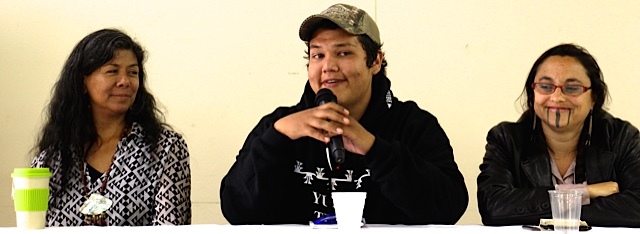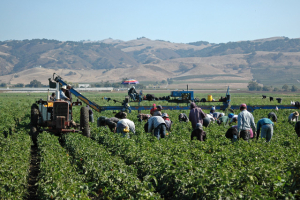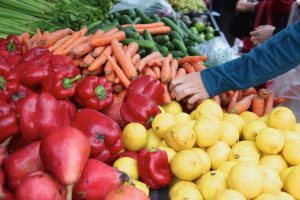
Food Sovereignty & The Food Movement
May 20, 2015 Michael R. DimockHow do we make change in the food movement? Clearly we can adjust our buying and eating habits. We can tell our friends, neighbors and colleagues about the importance of food and farming and the need for transformation We can work the halls of the State Capitol to enact new and better laws as ROC and the California Food Policy Council members are doing now with AB 1321 and AB 359 (see below and ACT!).
Food fighters from Northern California recently reminded the ROC team that we can also take back our food systems from the ground up in our local communities. In doing so we can improve health, revitalize local economies and heal the land and soil that has been degraded by industrial farming techniques. Having control of our own food sources and choices is called food sovereignty. As the Forum for Food Sovereignty in Sélingué, Mali, stated in 2007, “It puts those who produce, distribute and consume food at the heart of food systems and policies rather than the demands of markets and corporations. It defends the interests and inclusion of the next generation.” Food sovereignty in both the developed and developing world is at the heart of the food movement.
In Crescent City last week members of the Tolowa and Yurok tribes, some of them quite young, shared their stories of rebuilding the knowledge of and commitment to eating traditional foods. Securing these foods requires hunting, fishing, farming and preserving, which take time and dedication, but the payoff is great. Native Americans suffer more than any other segment of our society from the impacts of the modern American diet, particularly with Type 2 Diabetes. As the Tohono O’odham nation of Arizona has shown, when Indian people eat traditional foods, their health improves. The same has been shown to be true for African Americans who return to traditional African diets.
The loss of a traditional food system also brings about the loss of culture, which negatively impacts mental health and community cohesion. In any society, but particularly in indigenous communities, many beliefs, rituals and social activities emerge from the provision of food. Each of our American cultures is linked to a food tradition.
The industrial food system is certainly degrading America’s cultures and communities in all their manifestations. Fights in traditional California ranching communities are emerging over investment companies planting vast almond orchards. Rural towns across the land are dying because of industrial food’s concentration of wealth. Fewer and fewer people cook, which surely worsens our health, but also our identity, because family recipes embody a family’s unique culture.
The food movement is improving health, preserving culture and repairing natural ecosystems by reclaiming food sovereignty in communities across the land. Each of us can cultivate the emergence of new organic and sustainable farms and food companies through our purchases. We can become involved in projects and food policy councils that link sustainable local producers to the schools, churches and grocers in our communities. We can pull out the old family recipes and save seeds from our gardens. Then we can swap with our neighbors these recipes, seeds and the tasty bits of knowledge and culture that go with them. And all of us can send a letter or email, make a call, post on Facebook or Tweet to fight for policies within our cities, counties, states and country that will provide resources to rebuild our local food systems and our food sovereignty.



